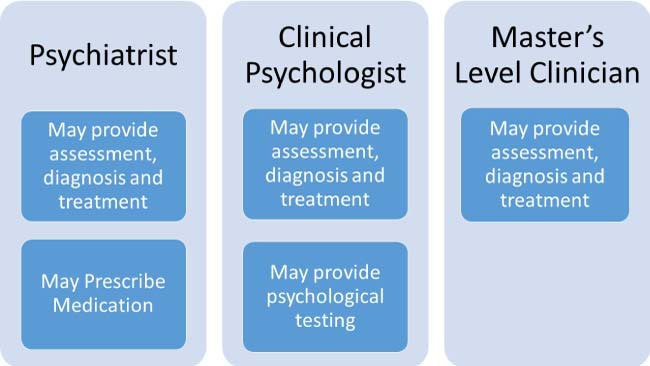6 Reasons Why Your Loved One Shouldn’t Detox at Home In 2025
Picture this: someone you love, battling the chains of addiction, decides they’re ready to break free. They’re tired, determined, maybe even a bit hopeful, and they figure, “Why not tackle this detox right here at home?” It sounds brave, doesn’t it? Like a lone sailor setting out to conquer a stormy sea. But hold on—before you cheer them on, let’s talk about why that sea might be hiding some seriously dangerous waves.
Detoxing at home in 2025 isn’t just a bold move; it’s a risky one, packed with hazards that could capsize even the toughest ships. Here’s a deep dive into six reasons why home detox is bad news, and trust me, you’ll want to stick around for this.
Cons Of Detox at Home
1. No Captain to Steer Through the Storm: The Lack of Medical Supervision
Ever tried fixing a leaky pipe without a plumber? You might get lucky, but chances are, you’ll end up with a flooded kitchen. That’s what detoxing alone feels like when withdrawal hits. Substance abuse doesn’t just politely pack its bags and leave—it fights back, hard. We’re talking seizures that shake the body like an earthquake, delirium tremens that turn reality into a nightmare, or heart problems that can stop the show entirely. These aren’t just complications; they’re emergencies that scream for professional help.
Also Read: Stress-Busting Techniques for Healthcare Students
Without medical supervision, your loved one’s playing a high-stakes game with no safety net. Alcohol withdrawal, for instance, can spike blood pressure to deadly levels—did you know up to 20% of untreated delirium tremens cases end fatally? Opioids and benzodiazepines aren’t any kinder; they can trigger symptoms that need immediate interventions.
Imagine trying to navigate that chaos with nothing but a DIY guide from a Reddit thread or a blog promising “natural detoxification.” It’s like using a paper map in a hurricane. Inpatient programs, on the other hand, have doctors who monitor vitality, adjust medication, and jump in when the storm gets rough. Why risk going unsupervised when safety concerns are this real?
And let’s not kid ourselves—at-home detox lacks the structured support to handle these risks. No one’s there to check their liver, kidney, or digestive systems when things go south. Health isn’t a guessing game, so why treat it like one?
2. The Siren Song of Relapse and Overdose
Here’s a gut-punch truth: detox doesn’t just test the body; it tempts the mind. Cravings hit like a tidal wave, whispering, “Just one more time won’t hurt.” But after even a short detox, the body’s tolerance resets, making an overdose scarily easy. Think of it like stepping back into a boxing ring after a break—your old punches don’t land the same, and the hits you take? They’re brutal. Relapse rates for substance abuse hover between 40% and 60%, and at-home detox programs are like stepping into that ring without a coach.
Also Read: Things You Can Do If Your Loved One Wants To Leave Rehab Early
Why’s this so risky? Because alone, your loved one’s got no one to spot the warnings. That stash of opioids or alcohol hidden in the back of a drawer? It’s calling their name, and without monitoring, a single slip can spiral into failure. Fatal overdose isn’t just a scary story—it’s a real pitfall. In 2025, with drugs like fentanyl still lurking, the challenges of detoxing without help are steeper than ever. Professional care offers therapy, medication, and support systems to quiet those sirens, plus protocols to catch slips before they become disasters. Isn’t that worth more than rolling the dice at home?
And don’t fall for the myth that willpower alone can conquer this beast. Relapse isn’t a sign of weakness—it’s a symptom of addiction, and home detox fails to address it with the severity it demands.
3. A Mind Left Adrift: Missing Mental Health Support
Detox isn’t just a physical battle; it’s an emotional rollercoaster. Depression creeps in like fog, anxiety buzzes like a swarm of bees, and in the worst cases, thoughts of suicide can darken the horizon. Substance abuse often walks hand-in-hand with mental health issues, and withdrawal can crank those struggles to eleven. The FDA’s flagged cases where opioid withdrawal led to suicide—yep, it’s that serious. So, why would anyone face this storm alone?
At-home detox is like trying to fix a broken engine with a paperclip—it’s not equipped for the job. Your loved one might try holistic remedies or herbal teas, hoping to cleanse their body and soul, but those recipes don’t touch the emotional needs. Professional treatment, whether inpatient or outpatient, brings therapy into the mix—think certified counselors who help untangle the knots of anxiety or depression. They’re like lighthouses guiding ships through the fog. Plus, support groups and community forums offer motivation and inspiration, something no DIY detox plan can match.
Without that guidance, the risks of mental health complications skyrocket. Why leave your loved one to drift when they could have a whole crew to keep them steady?
4. Chasing Fool’s Gold: The Ineffectiveness of At-Home Programs
Ever bought into a shiny promise that turned out to be a dud? That’s the vibe with most at-home detox programs. They’re marketed as quick solutions to cleanse your liver, kidney, or colon, with smoothies, juices, or supplements that sound like magic potions. But here’s the kicker: your body already has a natural detoxification system—liver, kidneys, lungs, and skin work overtime to keep things clean. Science says these programs are like trying to polish a diamond that’s already sparkling. They’re often a waste of money, with no real health benefits.
Take general health detox trends in 2025—vegan diets, intermittent fasting, or herbal infusions might feel trending or viral, but they don’t tackle substance abuse. Research shows no evidence that these methods speed up recovery or clear drugs like weed, THC, or Suboxone from your system faster than the body does naturally. Worse, they can distract from the real needs—like medical management for alcohol or opioid withdrawal. It’s like painting over a cracked wall and calling it fixed.
Why pour energy into ineffective practices when proven treatments are out there? Professional programs focus on results, not myths, and they’re tailored to the specific substance and person. That’s the kind of clarity your loved one deserves.
5. Starving the Body: Nutritional Deficiencies
Detox diets sound like a fresh start, don’t they? Blend a smoothie, sip some green juice, maybe toss in a superfood or two—boom, you’re on the road to wellness. But here’s the rub: these plans often leave your loved one running on empty. Substance withdrawal already puts the body through the wringer—think dehydration, energy crashes, and vitamin depletion. Add a DIY cleanse that skimps on nutrition, and you’ve got a recipe for malnourishment.
Take alcohol use disorder: up to 80% of folks show thiamine deficiency, which can mess with the brain and nervous system. Opioid withdrawal can zap electrolytes, leaving the body parched and weak. Now imagine pairing that with a diet of just broth or salad because some blog swore it’d detox your liver fastest. It’s like trying to run a marathon on a single cracker—good luck! At-home detox lacks the expert guidance to balance meal plans and avoid these pitfalls.
Professional care, though? It’s like having a chef and a doctor in one. Inpatient or outpatient programs ensure nutrition supports recovery, with supplements if needed to restore vitality. Why let your loved one’s health take a hit when better options exist?
6. Playing with Fire: Safety Concerns with Products
Ever grabbed a “natural” supplement off a shelf, thinking it’s gotta be safe? Think again. The detox products flooding the market in 2025—herbs, drinks, kits—aren’t always what they seem. Many are unregulated, like a wild west of ingredients that could hide hazards. The FDA’s cracked down on companies peddling supplements with adverse effects, from liver damage to heart palpitations. Why roll the dice on something that might burn the house down?
At-home detoxers might chase trendy solutions—ayurvedic herbs, organic teas, or homemade concoctions—but without certified guidance, they’re flying blind. A cleanse promising to refresh your kidneys or colon could spike blood pressure or trigger allergic reactions. And for substance abuse, these products are about as useful as a screen door on a submarine—they don’t address withdrawal or addiction.
Professional detox centers use trusted medication and therapies, backed by science and research. They’re like a sturdy bridge over a raging river, while at-home products are a rickety rope swing. Why take the risky path when safety’s on the line?
Wrapping It Up: Choose the Steady Path
So, there you have it—six big, flashing warnings about why detoxing at home in 2025 is like walking a tightrope without a net. From the dangers of unsupervised withdrawal to the ineffectiveness of DIY programs, the risks stack up fast. Your loved one’s health, both physical and mental, deserves more than a homemade plan pieced together from blogs or tutorials. Professional care—whether inpatient or outpatient—offers support, safety, and strategies to navigate the challenges of recovery.
Think of it like this: detox is a journey, and home detox is like hiking a mountain with no map, no guide, and no gear. Sure, it’s tempting to go natural, chase holistic hacks, or try a budget cleanse, but the stakes are too high for mistakes. Relapse, overdose, complications—these aren’t just words; they’re real threats that can derail the transformation your loved one’s chasing.
Why not give them the best shot? Inpatient programs or outpatient support bring expert care, personalized plans, and a community to cheer them on. It’s not about giving up control—it’s about gaining clarity, balance, and a real chance at long-term recovery. So, next time someone you love says, “I’ll just detox at home,” maybe share this list. It might just be the nudge they need to choose a safer path. What do you think—ready to help them find it




